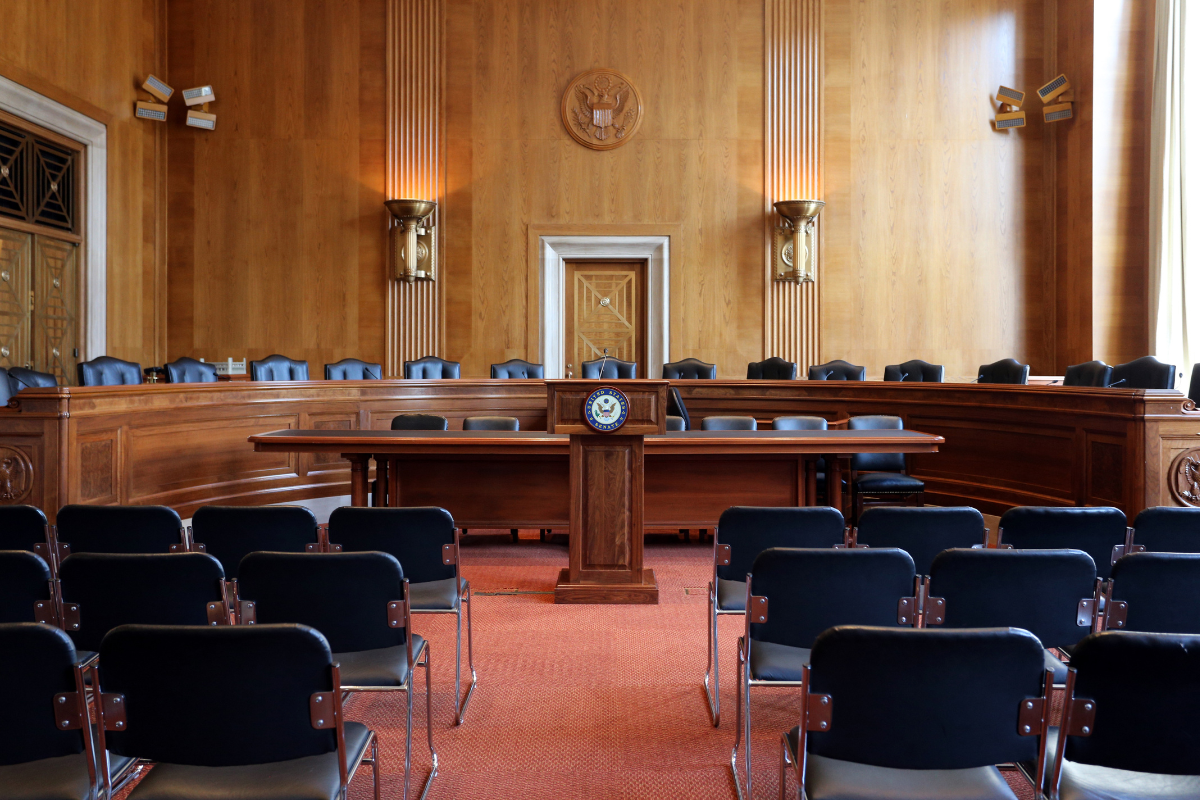
Opinions on potentially restricting e-scrap exports varied, with some arguing such a move would hinder sales and others arguing it would bolster domestic job creation. | Katherine Welles/Shutterstock
In a wide-ranging hearing on electronics recycling and reuse, several U.S. senators heard discussion about how export restrictions affect U.S. industry.
Testifying to the U.S. Senate’s Environment and Public Works (EPW) Committee on Wednesday were Ajay Kochhar of battery recycling startup Li-Cycle, Craig Boswell of ITAD and mobile device reuse company HOBI International, Kitty McIlroy of the Maryland Recycling Network and Northeast Maryland Waste Disposal Authority, and Charles Pellicane of nonprofit ITAD firm Human-I-T.
The hearing, led by longtime recycling advocate and chairman of the committee, Sen. Tom Carper, a Democrat from Delaware, was titled “Improving Capacity for Critical Mineral Recovery through Electronic Waste Recycling and Reuse.”
“Today, we’re interested in learning more about the role that the federal government can and should play in e-waste recycling,” Carper said during his opening remarks.
To export or not to export
In their written testimony, prepared remarks and answers to senators’ questions, the four witnesses touched on various aspects of the recycling industry. Among those various topics was the role exports play in the U.S. industry.
The testimony comes at a time of a shifting global landscape. In June 2022, countries that were parties to the Basel Convention on the Control of Transboundary Movements of Hazardous Wastes and their Disposal decided to amend the treaty’s language with changes affecting used electronics shipments. Overall, the update adds restrictions and requirements for cross-border shipments of used and scrap electronics, changes that are generally supported by the environmental activist community.
Meanwhile, a notable segment of the business community calling itself the Coalition for American Electronics Recycling (CAER) has, for well over a decade, lobbied for bills in Congress that would ban U.S. exports of various categories of e-scrap. The language, which gained some traction in Congress last year but failed to pass, has been long opposed by the Institute of Scrap Recycling Industries (ISRI), which generally supports fewer barriers to global trade throughout the recycling industry.
During Wednesday’s hearing, Boswell, who is president and co-founder of HOBI International, called the Basel Convention changes “the guillotine that’s over the industry’s head right now.” First proposed by Switzerland and Ghana, the amendment goes into effect in 2025.
Boswell said the rules, which essentially reclassify materials that have traditionally been considered non-hazardous as hazardous, will cripple U.S. sales of used mobile devices exported for reuse. He emphasized the global nature of the industry.
“I can get 22% more for a Google Pixel in the Middle East, in Europe, than I can in the U.S., and come 2025 if that Google Pixel maybe has a cracked screen or something else, they would lump it in now – under Basel, if you drop your phone, it’s now a hazardous material because you cracked the screen, and we would not be able to participate in those markets,” Boswell said.
“This will isolate electronics recyclers in the U.S. from the remainder of the global market,” he added.
Because the U.S. isn’t a party to the Basel Convention, the change means a de facto ban on U.S. exports to any country that the U.S. doesn’t have a bilateral trade agreement with, said Boswell, who was also speaking on behalf of ISRI. Currently, the U.S. has such an agreement with only Canada, although he said he hoped the U.S. would forge a similar deal with the Organization for Economic Cooperation and Development (OECD), a grouping of countries with developed economies, before the Basel changes take effect on Jan. 1, 2025.
A protectionist angle
Other speakers urged the U.S. government to restrict exports of materials to bolster the U.S. recycling industry.
Kochhar, president, CEO and co-founder of Li-Cycle, said the U.S. could support the emerging lithium battery recycling industry by addressing the “leakage” of scrap materials to Asia.
“And it’s not just in batteries. It’s in e-waste, it’s in other industries,” Kochhar said. “We have to be practical about it, right? You can’t stifle companies. At the same time, it’s difficult, but that’s a big threat. And we’ve seen it in our industry, right, 90%-plus of lithium-nickel-cobalts all heading through China. So we need to build it here, that’s a corporate responsibility. But there needs to be the right policy environment to help support that.”
Pellicane, executive vice president of business development and operations at Human-I-T, argued restricting exports would support domestic job creation and reduce risk of used chips being sold as new ones for use in U.S. electronics, including defense equipment.
“Really there’s that national security importance that we need to recognize, and there’s an ability to create jobs through the proper collection of those items while at the same time reducing our dependence on imported minerals,” Pellicane said.


